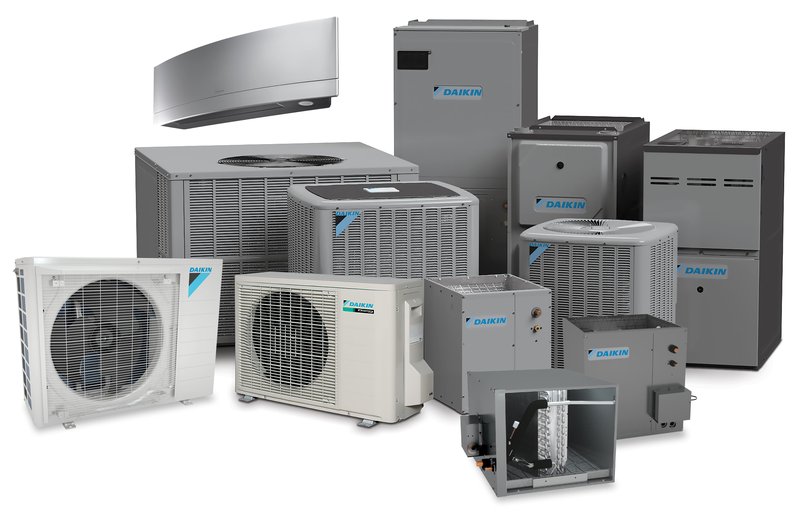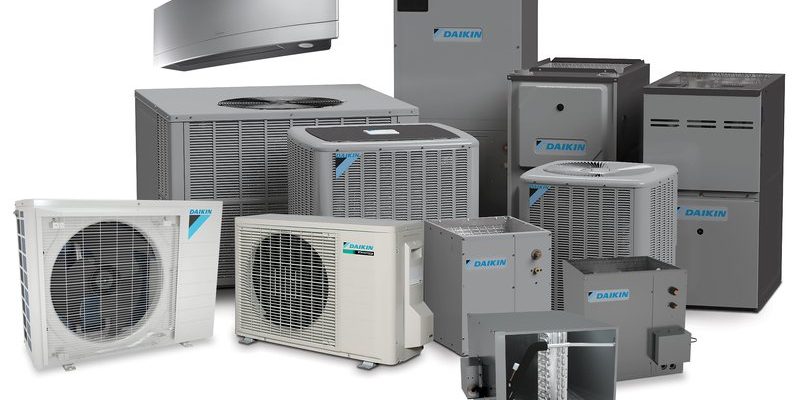
Imagine you’ve just moved into a new rental home, and the landlord has installed a sleek Daikin HVAC system. It’s like getting a fancy new gadget handed over—but here’s a question: can you, as the tenant, actually register that HVAC system with Daikin? Or is that a “landlord-only” move? This might sound like a small detail, but registering your HVAC unit can unlock warranties, troubleshooting support, and peace of mind.
Think of it like buying a phone. If you bought it yourself, you’d likely register it under your name to get software updates and repairs covered. But what if it was bought by someone else and handed to you to use? That’s similar to your situation with landlord-purchased HVAC systems. So, let me explain how it works, what’s possible, and why it matters for tenants dealing with Daikin HVAC units.
What Does It Mean to Register a Daikin HVAC System?
Registration is basically the process where the owner of the HVAC system provides their details to Daikin, confirming the purchase and linking the product to them. This helps Daikin know exactly who owns the unit and when it was bought. It’s important because it activates warranties, ensures you have access to official support, and sometimes unlocks special services or updates.
When you register a Daikin HVAC system, you’re telling the company, “Hey, this unit is mine, and I want to get the full benefits.” That can include things like repair assistance, replacement parts, or even firmware updates if your unit is smart-enabled. On the flip side, if a system isn’t registered, getting warranty service might become a hassle.
Now, here’s the thing: the registration typically expects the actual purchaser to sign up—the one who paid and owns the system. This naturally brings us to the tenant vs. landlord question.
Why Registration Usually Falls to the Landlord, Not the Tenant
Most landlords buy HVAC systems as part of the property, treating it like a built-in appliance, much like a stove or a fridge. The system is their property, not yours. So, they’re the ones who typically register the unit with Daikin, keeping the warranty and service agreements in their name.
From Daikin’s perspective, the product owner is the person who bought the HVAC system. If the landlord purchased it, they’re the registered owner by default. That makes sense, because when warranty claims come up or service calls are needed, Daikin will contact the registered owner. This setup ensures things like maintenance and repairs are coordinated through the property owner.
If you think about it, it’s kind of like leasing a car. You’re the driver, but the registered owner is the leasing company. They hold the main paperwork, while you just enjoy the ride. So, in a rental property, the landlord holds the ownership “papers” for the HVAC system.
Can Tenants Register a Landlord-Purchased Daikin HVAC System?
Honestly, this is where it gets a bit tricky. Technically, Daikin’s registration systems and warranties are designed for the owner of the unit. So, if you try to register as a tenant, you might run into roadblocks since the purchase invoice is usually in the landlord’s name.
Here’s the thing: some landlords allow tenants to register the unit for convenience, especially if they want tenants to manage their own HVAC usage and troubleshooting. But most landlords won’t give you the purchase details or warranty code, which makes independent registration difficult.
That said, if you do have the purchase information—say, the landlord hands over the invoice or warranty card—you can attempt to register it yourself. Just keep in mind that if any warranty or service issues arise, Daikin will likely want confirmation from the actual purchaser.
Steps Tenants Can Try to Register a Daikin HVAC System
- Ask your landlord for the purchase details or registration info. Explain why you want to register (warranty, troubleshooting help, etc.).
- Check Daikin’s online registration portal to see if it allows registration without purchase proof (this is rare).
- Provide proof of residence or tenancy along with serial numbers when registering—sometimes Daikin customer service can help.
But here’s a fair warning—since the landlord owns the system, Daikin might insist that warranty claims or service be routed through them. So even if you register, the landlord probably needs to be involved for official support.
Why Registration and Warranty Matter for Tenants
You might be wondering why this matters so much. If you’re renting, shouldn’t the landlord just handle everything? In theory, yes, but in practice, it’s not always that smooth.
Registering the HVAC system can give you quicker access to troubleshooting guides, user manuals, and sometimes direct customer support from Daikin. This is especially helpful if you encounter issues like your remote not syncing, needing to reset the unit, or simple maintenance tips like battery replacement for remote controls.
Also, if the system isn’t registered, warranty coverage might be limited or void, which could mean longer wait times for repairs or out-of-pocket costs. So from a tenant’s perspective, having access to registration info can be a safety net.
How Tenants Can Manage HVAC Issues Without Registration
Not having the HVAC system registered yourself doesn’t mean you’re powerless. Here’s a quick rundown of how tenants can troubleshoot or manage common HVAC hiccups:
- Remote control syncing or reset: Many Daikin HVAC units allow you to pair or reset the remote manually. This often involves holding buttons like “reset” or “off” for a few seconds—a process outlined in the user manual.
- Battery replacement: If the remote is acting up, swapping out the batteries is a simple first step. Most remotes take standard AAA batteries.
- Basic troubleshooting: Check filters, vents, and power connections. Sometimes a quick reset (turn off and on) fixes minor glitches.
If these don’t solve the problem, reaching out to your landlord is usually necessary—they have the registration info and warranty access to get professional support.
Alternatives for Tenants: Universal vs. Daikin Brand Remotes
Sometimes landlords provide original Daikin remotes, but you might find yourself wanting a replacement or backup. Here’s where universal remotes come into play. They can mimic Daikin HVAC commands and are handy if the original remote is lost or broken.
Universal remotes sync with many brands, but they might not offer the full feature set or perfect compatibility. For instance, advanced functions like scheduling or temperature calibration may only work with the official Daikin remote.
On the other hand, sticking with the Daikin brand remote ensures seamless syncing, fewer troubleshooting headaches, and direct support. It’s like choosing the original charger for your phone instead of a generic one—sometimes the extra cost pays off in reliability.
Understanding Daikin Customer Support for Tenants
If you are a tenant dealing with HVAC issues, you might try contacting Daikin customer support. Here’s what to expect:
- Proof of ownership: Daikin will typically ask for purchase information or registration details. Without these, they might direct you back to the landlord.
- Troubleshooting help: They can offer step-by-step guides for common problems like syncing the remote, resetting the unit, or basic maintenance.
- Warranty claims: Usually require landlord involvement since they own the unit.
Bottom line: Daikin support is there for tenants, but the landlord usually holds the keys. It’s a bit like trying to get help for a car you’re renting—you can get roadside assistance, but the leaseholder handles major repairs.
Final Thoughts: Navigating HVAC Registration as a Tenant
So, can tenants register Daikin HVAC systems purchased by landlords? The short answer is usually no—unless the landlord shares the purchase info and agrees to it. Registration primarily belongs to the owner, which in rental setups, is the landlord.
That said, tenants aren’t left helpless. You can troubleshoot many common HVAC problems yourself, use remote controls (original or universal), and work with your landlord for warranty and repairs. If you want peace of mind, it’s worth having a friendly chat with your landlord about registration and support—sometimes they’re open to sharing registration details or even registering the unit in the tenant’s name.
At the end of the day, keeping your living space comfortable is what matters most, and understanding how Daikin HVAC registration works helps you navigate that with confidence.
